Spirit of Lagos unearthed the story of Abi Morocco Photos, one of the most vibrant photographic studios operating in Lagos. The studio’s remarkable black-and-white portraits celebrate the rich style and joyous spirit of a generation of Lagosians during a transformative period in Nigeria’s history. Operated by husband-and-wife duo John Abe and Funmilayo Abe the studio thrived from the 1970s to 2006. The exhibition Spirit of Lagos focuses on the studio’s formative decade - the 1970s.
Their oeuvre encompasses a variety of styles: from formal studio portraits to commissioned photos at home and moments of celebration. The studio was frequented by Lagosians of many walks of life including those who had attained economic prosperity during Nigeria's rapid transformation following the oil boom.
The Abes merged striking visual elements such as a chequerboard floor and hand-painted backdrops with the bustling Lagos metropolis. When viewed collectively these beguiling portraits brings the sitters and their world into a space of liberation and reimagination, vividly capturing the rhythm of everyday life.
In the 2000s many Nigerian photography studios, including Abi Morocco Photos, transitioned towards digital photography. As a result, many negatives and physical records were at risk of being lost or destroyed in favour of new technologies. The works in Spirit of Lagos were exhibited as the result of the ongoing efforts of the Lagos Studio Archives project, run by artists Karl Ohiri and Riikka Kassinen, which aims to preserve and present the legacy of Nigerian studio photography. Through their research the contributions of studios like Abi Morocco Photos can now be recognised in the cultural history and discourse of African studio portraiture.
I was witnessing this history that was on the verge of being destroyed
Lagos Studio Archives to CNN
Archives like Abi Morocco Photos present the imagery of a generation of photographers that captured the style, humour and aspirations of everyday Lagosians. Hundreds of negatives from the studio were facing degradation, and would not be seen by the wider world without intervention.
Unlike many African portrait studios of that era, the John Abe and Funmilayo Abe carved out a unique photographic vocation: few female practitioners or collaborators in this context were named and worked so prolifically in a male-dominated field. Merging their professional and personal lives, the couple balanced raising a large family while running a successful commercial photographic studio.
Funmilayo Abe’s pivotal role challenges conventions, making her one of the few recognized female figures in African portrait photography of the time
Photo London (Instagram)
Autograph is a charity, and as part of our mission we work to preserve and share diverse photographic history – reshaping the canon of visual culture to build a more inclusive future in the arts and beyond.
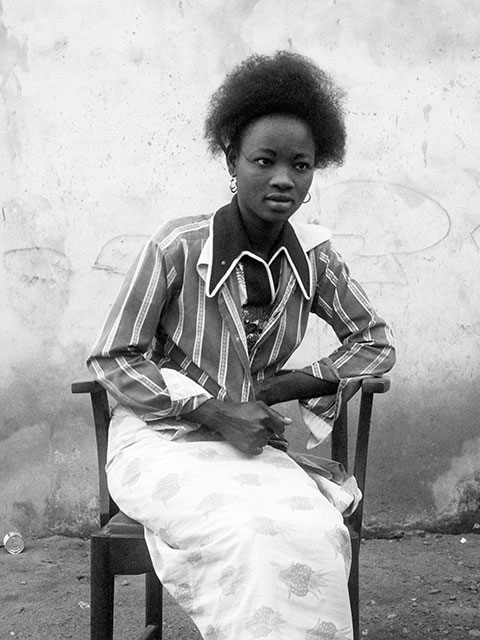
Funmilayo Abe (b. 1953, Mushin, Nigeria) specialised in various forms of commercial portraiture, including studio portraits, documentary, and street photography.
She chose not to pursue formal schooling after primary school and instead followed her passion for photography. Between 1967 and 1970, she apprenticed with a local female photographer known as "Nike Photo" in Shogunle, where she honed her skills in photography and enjoyed the solitude of the darkroom. Gaining respect in her community as a talented photographer, Abe established several studios from 1969 to 2021, both independently and with her husband. These studios included “Funmilayo Photo,” “Young Abi Morocco Photos,” “Abi Morocco Photos,” and “Jadesola Photo.” She retired in 2021, she continues to live in Alagbado, Lagos State.
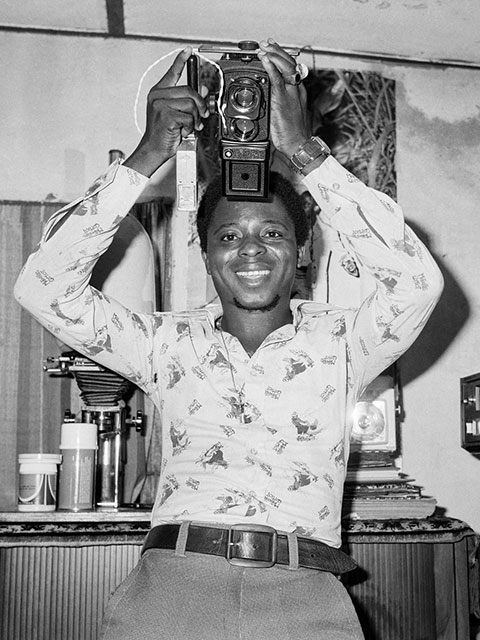
John Abe (b.1946, Ekiti, Nigeria – d. 2024, Alagbado, Lagos State, Nigeria) developed an interest in photography at age 12 when a photographer was commissioned to take portraits of his mother and grandmother at their home.
He recalls watching the photographer at work was like seeing a magician perform magic. Determined to pursue his passion, he apprenticed under Mr. Oladiran Asaiya, also known as "Yankee Photo," in Ogun State between 1968-1969. After moving to Lagos in 1969, Abe was able to purchase his first camera and a bicycle, which he used to travel around, advertising his services with a bag labelled "Abi Morocco." Over the years, the studio operated under various names in independence and partnership with his wife including "Young Abi Morocco Adeomosun Photos," "Young Abi Morocco Photos," and "Abi Morocco Photos." Specialising in many forms of portraiture Abe continued his photography career and ran the studio until his retirement in 2006. Abe passed away in June 2024 at the age of 77.
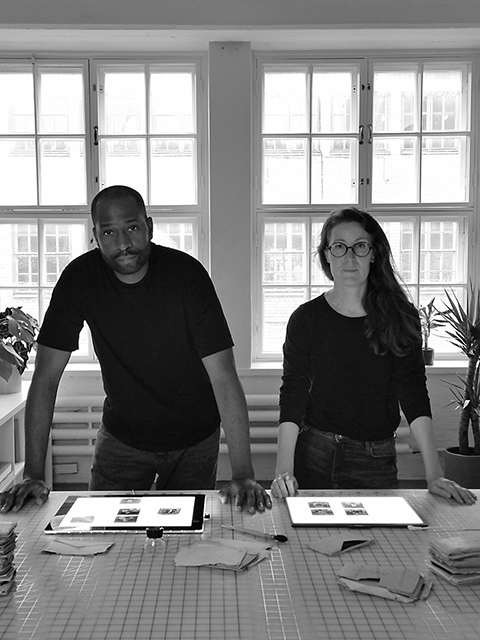
Lagos Studio Archives is an ongoing cultural preservation project by Karl Ohiri (UK/NIG) and Riikka Kassinen (FIN/UK), consisting of thousands of film negatives documenting studio portraiture and vernacular photography in Lagos from the 1970s to post millennium.
The project started in 2015 when Ohiri discovered that many archives were being destroyed, discarded and stored away in humid conditions by a generation of photographers who were part of a shift from analogue to digital photography. Working with local photographers Ohiri started acquiring the endangered negatives in an attempt to ensure that this precious cultural heritage was not lost over time.
The Lagos Studio Archives aims to preserve and present the imagery of a generation of photographers that captured the style, humour and aspirations of everyday Lagosians, whose works would have gone unnoticed to the art world without intervention.
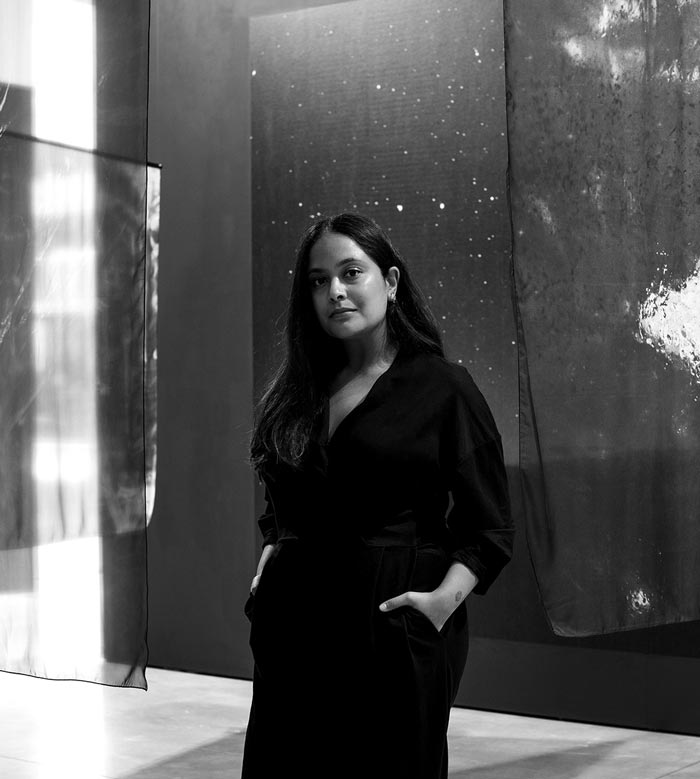
Bindi Vora is an interdisciplinary artist of Kenyan Indian heritage and Senior Curator at Autograph. She is interested in how ideas of resistance and resilience are shaped by our surroundings, personal histories and lived experiences.
She has curated a number of critically acclaimed exhibitions, most recently I Still Dream of Lost Vocabularies and Eileen Perrier: A Thousand Small Stories. Her writing has appeared in Another Country: British Documentary Photography Since 1945 (Thames & Hudson) and Tate Dialogues: The 80s: Photographing Britain (Tate) amongst others. Vora is part of the working group ‘Climate and Colonialism’ at The Paul Mellon Centre and Autograph; and is part of the Arts Advisory Committee at Imperial Health Charity.
This exhibition was dedicated to the memory of John Abe who passed away on 26 June 2024. We will miss your smile, laughter and all the great conversations we shared on photography. It was an honour and a privilege to work with you on this exhibition, we hope we made you proud. We are profoundly grateful for your enthusiasm and support, to enable us to present the story of Abi Morocco Photos. May your gentle soul rest in peace.
In 2023, Ohiri and Kassinen were selected by Autograph as the inaugural Yinka Shonibare Foundation / GAS Lagos Artist-in-Residence to facilitate critical research and the development of the work. Lagos Studio Archives artistic research and the development of the project is funded by the Kone Foundation for the years 2024 and 2025.
With thanks to the Finnish Institute UK and Ireland.




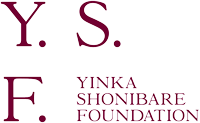
Banner image: Abi Morocco Photos, Aina Street, Shogunle, Lagos [detail], 1979. Courtesy Lagos Studio Archives. © Abi Morocco Photos.
Installation: 1-3) Photograph by Kate Elliott. 4) Photograph by Jannell Adufo.
Exhibition preview: All images courtesy Lagos Studio Archives and © Abi Morocco Photos. 1) Abi Morocco Photos, Aina Street, Shogunle, Lagos, 1979. 2) Abi Morocco Photos, Aina Street, Shogunle, Lagos, 1979. 3) Abi Morocco Photos, Anthony Village, Lagos, 1975.
About the artists: 1) Courtesy Lagos Studio Archives. © Abi Morocco Photos. 2) Abi Morocco Photos, Aina Street, Shogunle, Lagos [detail], c. 1970s. Courtesy Lagos Studio Archives. © Abi Morocco Photos.
Curated by: 1) Karl Ohiri and Riikka Kassinen. Courtesy Lagos Studios Archives. 2) Bindi Vora. Photograph by Zoë Maxwell
Autograph is a space to see things differently. Since 1988, we have championed photography that explores issues of race, identity, representation, human rights and social justice, sharing how photographs reflect lived experiences and shape our understanding of ourselves and others.